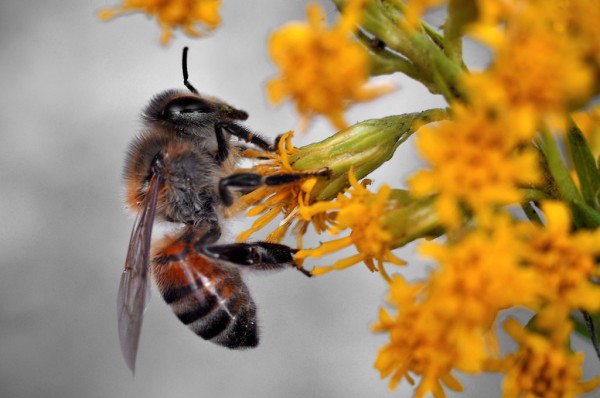By Dane Lorica, | November 16, 2016

Scientists have found that a Wasp virus called Moku may also affect Honey Bees. (Flickr)
A new virus targeting Hawaiian wasp species has been discovered to have adverse effects on honey bees.
The microbe called Moku discovered in the wasp species Western Yellow Jacket (Vespula pensylvanica) can infect many crop pollinators worldwide and is regarded as an invasive pest in the region.
Like Us on Facebook
Wasps are predators that feed on various arthropods such as honey bees. Honey bees, which are important to the food system, are already being threatened by several ecological issues such as colony collapse of worker bees and infestation of Varroa mites that can cause wing deformity making the arthropod useless.
The sequencing of the MV genome revealed that it is close to slow bee paralysis virus which affects the front limbs of bees.
"The use of next generation gene sequencing techniques has led to a rapid increase in virus discovery, and is a powerful tool for investigating the enormous diversity of viruses out there," said Gideon Mordecai, author of the study. "MV sequences were also detected in honey bees and Varroa from the same location, suggesting that MV can also infect other hymenopteran and Acari hosts."
Researchers have not yet identified the viral mode of transmission. However, they hypothesize that both bees and wasps acquire the infection through flower nectars. Mordecai stated that "future challenges will be assessing the biological relevance of these novel pathogens and the role they play in the ecology of their hosts."
The study, which investigated the "enormous diversity of viruses," was published in the Nature journal Scientific Reports this month.
-
Use of Coronavirus Pandemic Drones Raises Privacy Concerns: Drones Spread Fear, Local Officials Say

-
Coronavirus Hampers The Delivery Of Lockheed Martin F-35 Stealth Fighters For 2020

-
Instagram Speeds Up Plans to Add Account Memorialization Feature Due to COVID-19 Deaths

-
NASA: Perseverance Plans to Bring 'Mars Rock' to Earth in 2031

-
600 Dead And 3,000 In The Hospital as Iranians Believed Drinking High-Concentrations of Alcohol Can Cure The Coronavirus

-
600 Dead And 3,000 In The Hospital as Iranians Believed Drinking High-Concentrations of Alcohol Can Cure The Coronavirus

-
COVID-19: Doctors, Nurses Use Virtual Reality to Learn New Skills in Treating Coronavirus Patients







